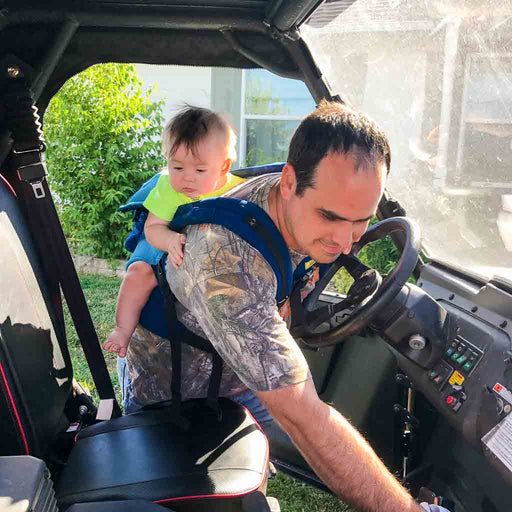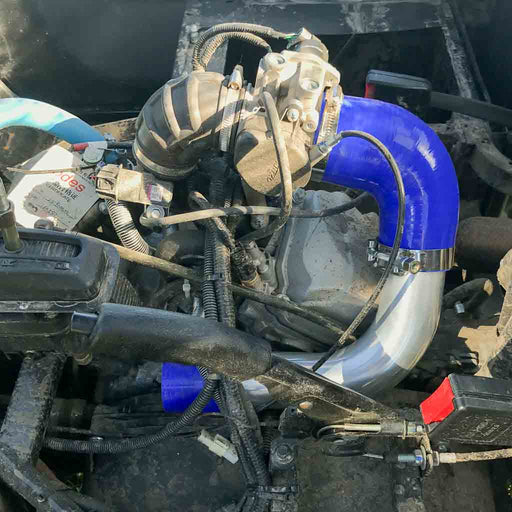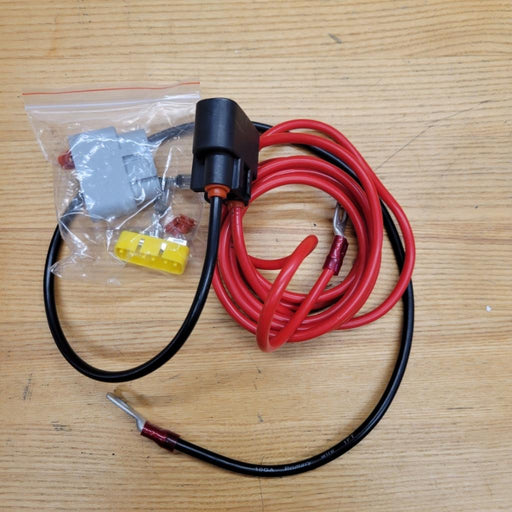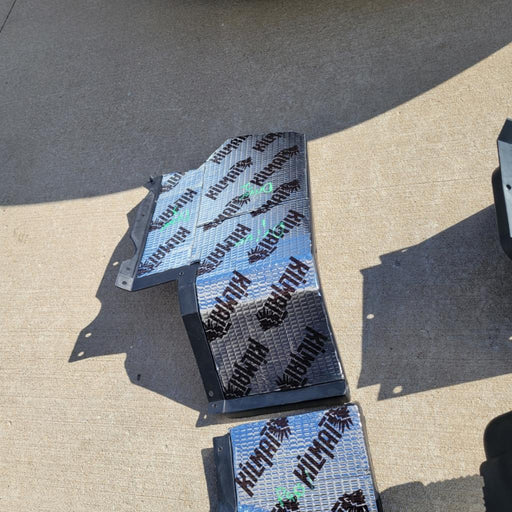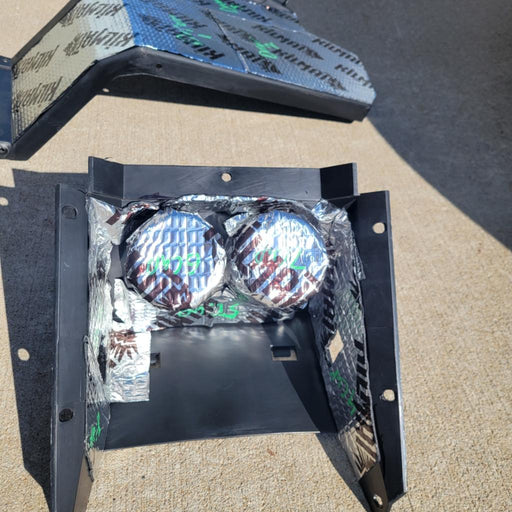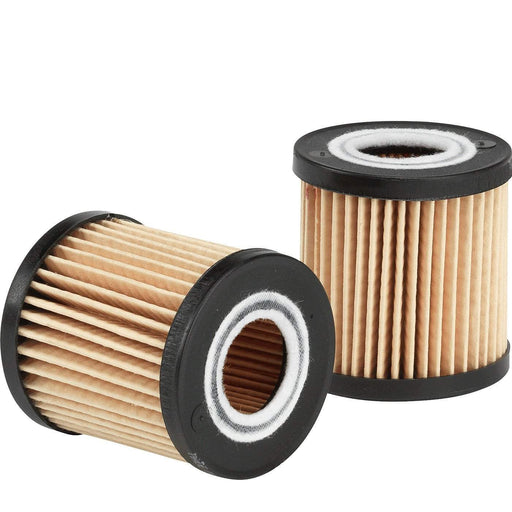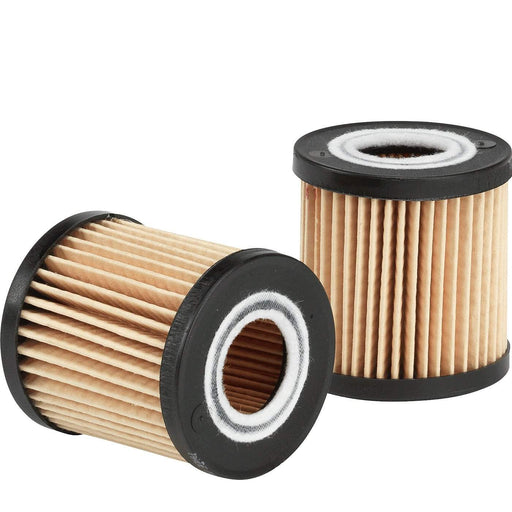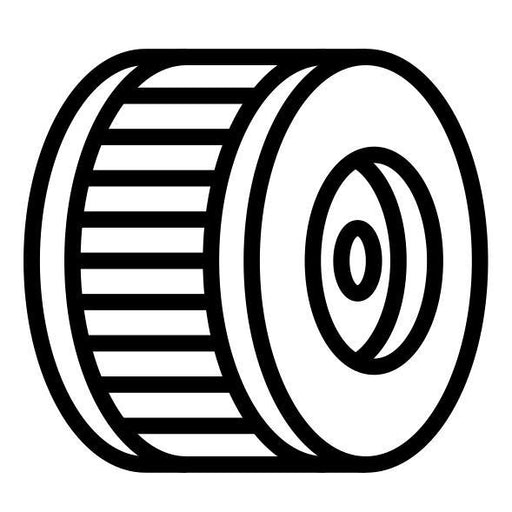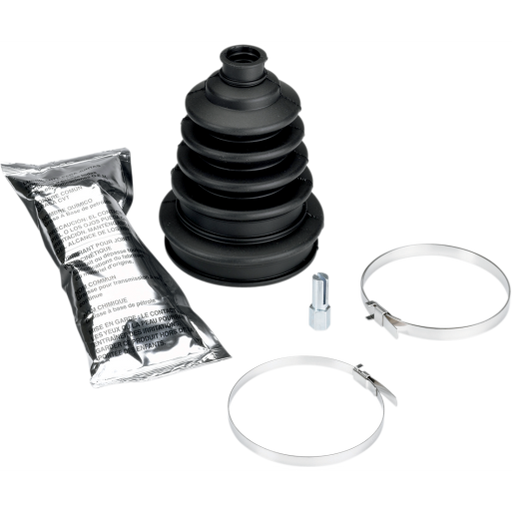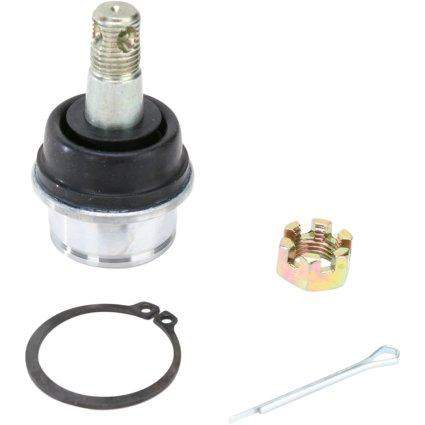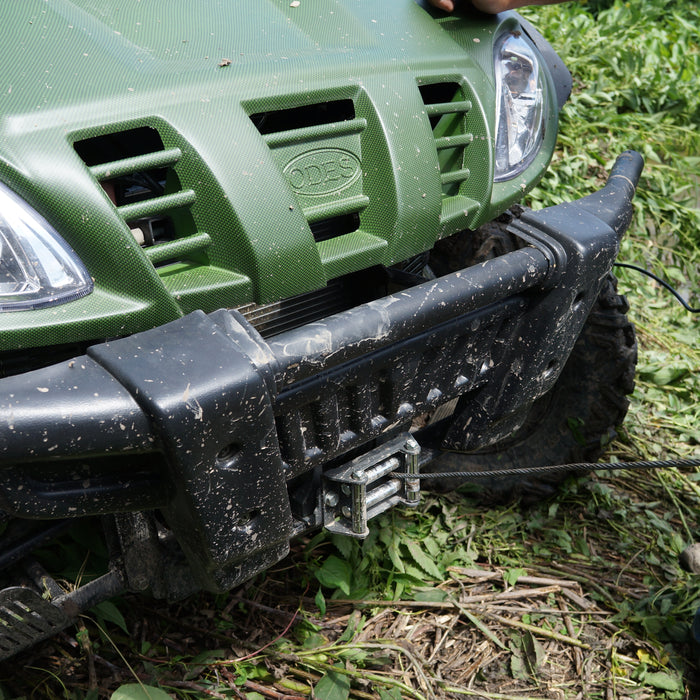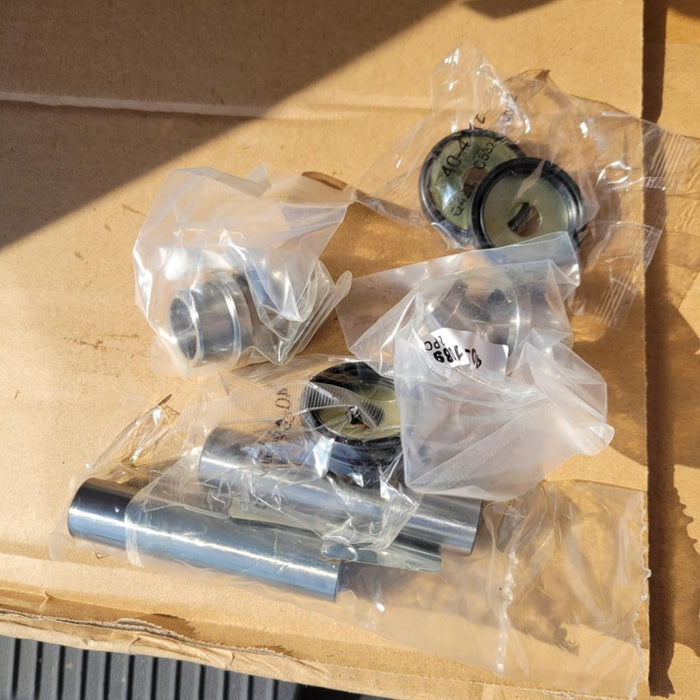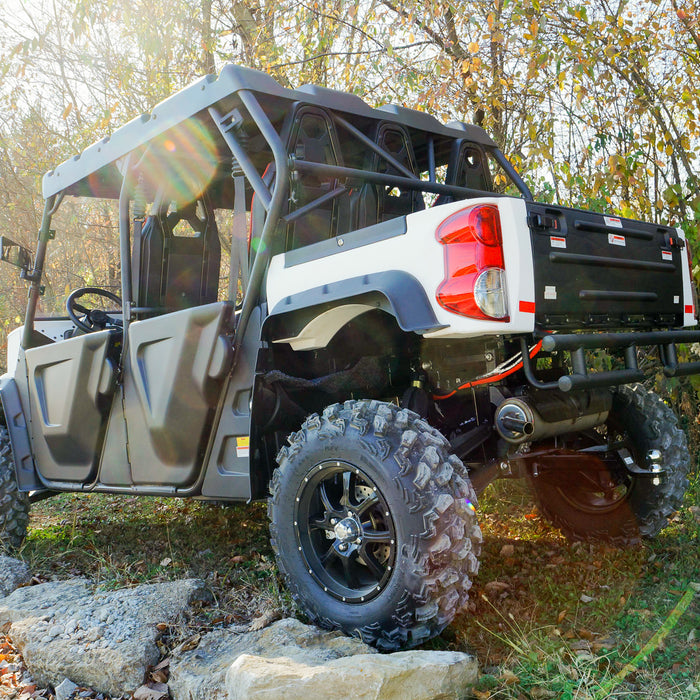
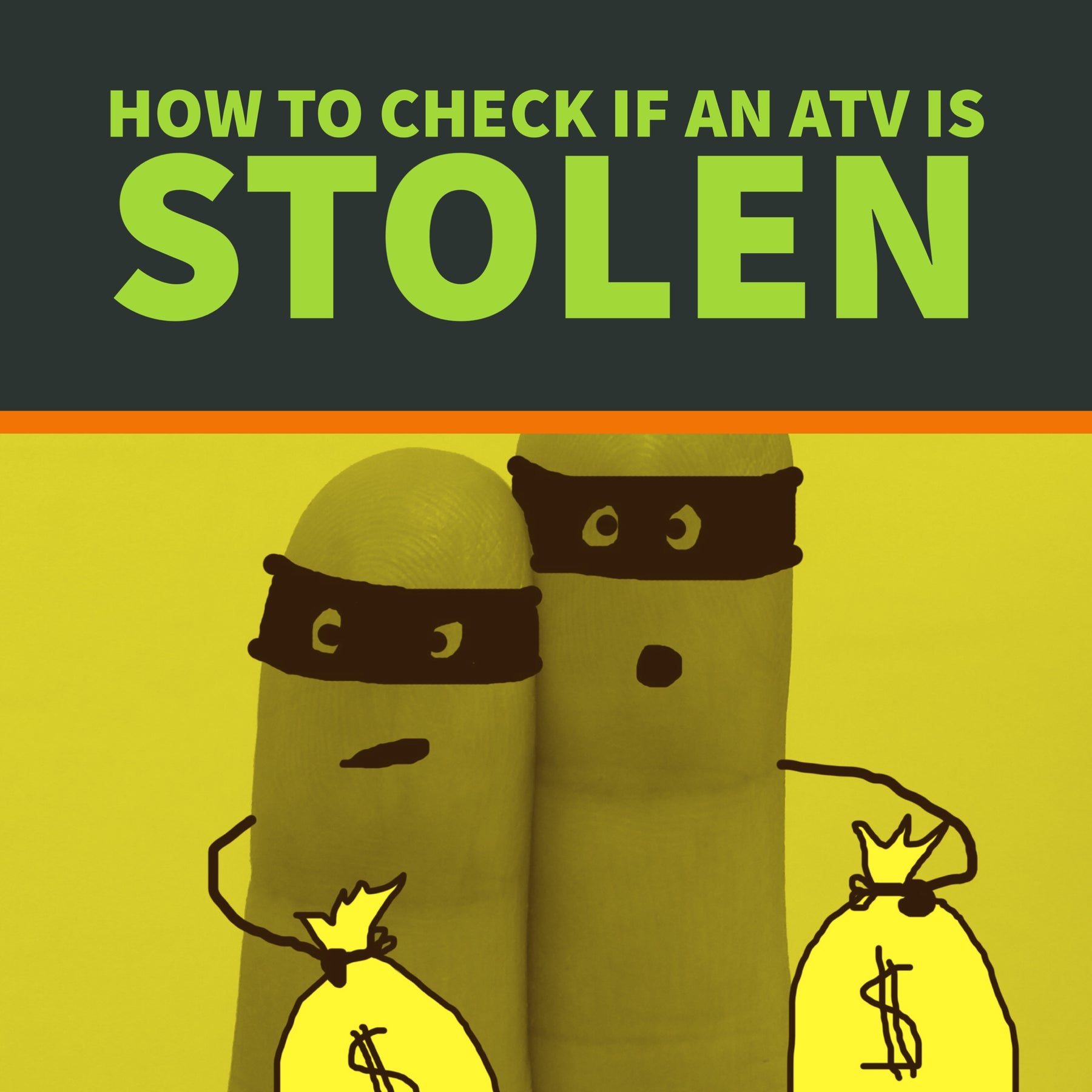
Don't buy a stolen ATV. It's easy.
Anyone who knows us real well, or has spent much time on our website, knows that we are big on purchasing used ATVs. Especially in situations where you are either a first time buyer or are purchasing for a child. (Although, those are far from being the only reasons buying used is a good idea - I've been known to gush about my Warrior 350.)
But buying used does have some risks. When you meet with a buyer, there is always the potential that what you're looking at is a stolen ATV. We hate saying that because the majority of people that we have worked with have been really upstanding. But the unfortunate reality is that ATVs are fairly easy to steal. (No, we have absolutely never stolen anything, nor are we advocating that you go out and give it a try).
This is unfortunate not only for the original owner, but for the unsuspecting purchaser as well. If your ATV is confiscated because it was reported stolen, there is no compensation for any money that you've invested. On the upside, there are steps that you can take ahead of time to help avoid purchasing a stolen ATV. Before you plan on meeting with a seller, it's a good idea to make a mental note of any legal requirements for your area. Additionally, the three steps below should help you to know if you're walking into a deal that's too good to be true.
Ask About the Title
Ok, there are a couple of caveats to this. If the seller says there is no title - this is not a deal breaker. For one, title requirements vary from state to state. You really need to know the requirements for the state you are purchasing from before you can assess whether or not something fishy is going on. Second, some ATVs are sold new with a certificate of origin instead of a title. That means that at the time of purchase, it is up to the owner to get a title from the DMV. Again, depending on the state, the owner might not mess with it because it might not be a legal requirement. And while I hate to admit this, there are some people out there who won't get a title, even though they are required by law. Fortunately, it's usually fairly easy to get a title transferred into your name. You'll want to make sure that you contact your local DMV to find out what the requirements for that might be. A great place to look up state specific requirements and contacts is DMV.org.
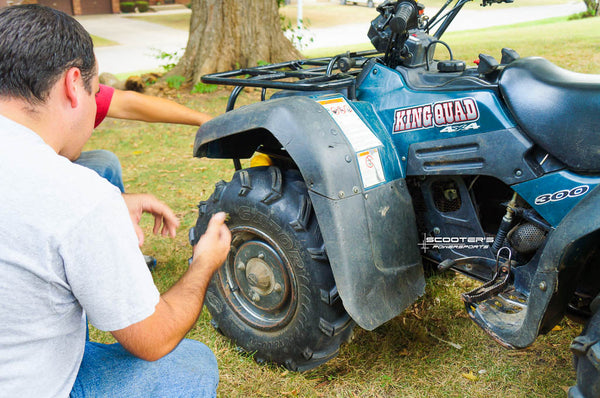
Run a VIN Check
Running a VIN check is not only free, it is extremely easy. All you need is the VIN in question and an active internet connection. We like to use the VINCheck service provided by the National Insurance Crime Bureau. The NICB lets you run up to five VINChecks within a 24-hour period. For most people, that is more than enough. But before you go whipping out that smartphone, let's talk a little about etiquette. You should always ask the seller's permission to run the VIN. Most people are more than willing to let you. In fact, the majority of sellers we've worked with have never heard of the NICB database and were not only willing to let us run the VIN, but were curious about the site and anxious to take down the web address. So not only does asking permission keep you from looking shady yourself (or accidentally implying that you think the seller might be shady), but it can strike up a conversation and hopefully give someone else a tool that they can use in the future as well.
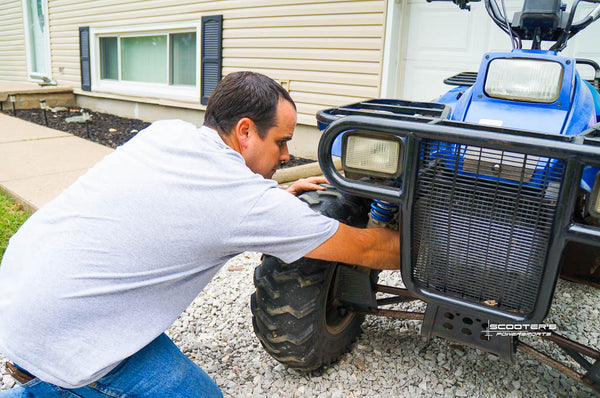
Complete a Bill of Sale
Hopefully the first two steps have gone smoothly. Maybe there is a title, maybe there's not. Ideally, you would have some piece of mind from running a VINCheck. Even better, maybe you've established a rapport with the seller by sharing the awesome resource that is VINCheck. You're ready to make the sale, so now what do you do?
Our final tip for protecting yourself is to always carry a couple of blank copies of a Bill of Sale. Why more than one copy? Well you'll want to make sure that both you and the seller have a copy. Since most people don't carry a Xerox around with them, we usually take at least two. Yes, it's kind of a pain to fill it out twice, but it makes sure everyone has an original copy. Completing a Bill of Sale on a used ATV does a couple of different things.
First, let's say the ATV was stolen but for some reason or another it hadn't been reported at the time that you purchased it. If you are caught with a stolen ATV, it's confiscated. There's no way to be reimbursed and you are out whatever your purchase price was. A Bill of Sale helps keep you from looking like you knowingly purchased stolen property. Additionally, you have the seller's contact information. In the event that your newly purchased ATV does turn out to be stolen, you have a paper trail that doesn't start with you. You may even be able to take the seller to small claims court to recoup some of your costs.
This isn't to say that a Bill of Sale only protects the buyer. If you happen to sell an ATV that has been stolen (and I sincerely hope that you had no idea), the Bill of Sale gives you a record of the new owner's contact information. That way, if you are ever approached about said ATV, you can at least help to track it down. Since completing a Bill of Sale is something that we feel so strongly about, we thought we'd share the form that we use with you. Click the image below to download a PDF of the Bill of Sale that we use each and every time we purchase a used ATV.
We have purchased a lot of used ATVs and we walk through these steps every time. It's a system that we find works really well for us. If you take these steps the next time you are negotiating, you can greatly minimize your risk of purchasing a stolen ATV. Again, the key is not to fall for a deal that's too good to be true. If you know of someone who is planning to purchase a used ATV, please pass these tips along. ATV theft is a crime that affects more than one person and not doing your due diligence is the quickest way to become a victim.
But seriously, keep in mind that these tips are just tips - things we've learned from our own personal experiences. We're not lawyers and we don't pretend to be. But we do care about doing things right. Both morally and legally. That being said, it's important to use your own judgement. If everything checks out but it still feels fishy, walk away.
Fortunately, we've never had any problems with ATV theft but we've met people who have had awful experiences. Do you have any stories about ATV theft? What about any resources for someone looking to purchase a used ATV? And have you ever walked into a deal where something just felt off? Reach out to us on Facebook.
-
Original price $ 159.99 - Original price $ 204.99Original price$ 159.99 - $ 204.99$ 159.99 - $ 204.99Current price $ 159.99
Air Filter Relocation Kit for ODES UTVS
Scooter's PowersportsIn stockOur very own Air Filter Relocation kit for ODES UTVS. Designed and manufactured by Scooter's Powersports. Unlike some ODES Air Filter Relocation K...
View full detailsOriginal price $ 159.99 - Original price $ 204.99Original price$ 159.99 - $ 204.99$ 159.99 - $ 204.99Current price $ 159.99 -
Original price $ 40.00 - Original price $ 40.00Original price$ 40.00$ 40.00 - $ 40.00Current price $ 40.00
Voltage Regulator Relocation Kit for ODES UTVS
Scooter's PowersportsDesigned to move the voltage regulator from under the hood to under the seat. Requested by you and built by Scooter's Powersports. Allows for elimi...
View full detailsOriginal price $ 40.00 - Original price $ 40.00Original price$ 40.00$ 40.00 - $ 40.00Current price $ 40.00 -
Original price $ 129.99 - Original price $ 159.99Original price$ 129.99 - $ 159.99$ 129.99 - $ 159.99Current price $ 129.99
Pre-Cut Sound Proof Matting for ODES UTVS
Scooter's PowersportsIf the noise inside the cab of your ODES UTV has ever bothered you, this. is your solution. Now you can get one of our best selling shop services a...
View full detailsOriginal price $ 129.99 - Original price $ 159.99Original price$ 129.99 - $ 159.99$ 129.99 - $ 159.99Current price $ 129.99 -
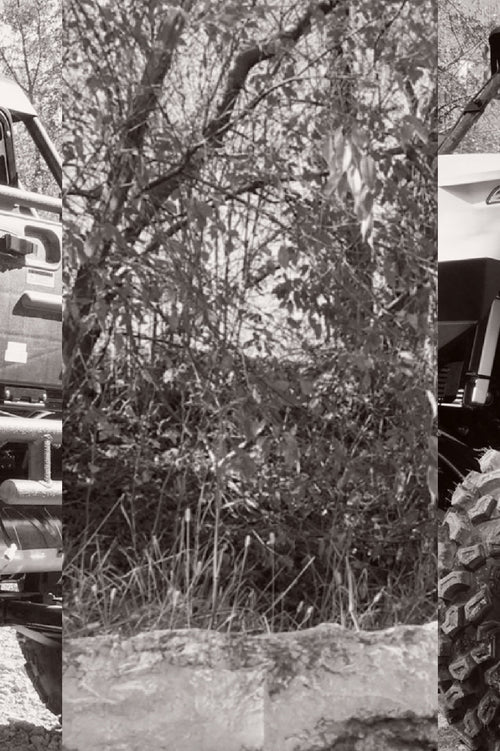 View all ODES UTV Performance mods
View all ODES UTV Performance mods
-
 ODES UTVS best sellers
ODES UTVS best sellers -
Original price $ 38.49 - Original price $ 55.99Original price$ 38.49 - $ 55.99$ 38.49 - $ 55.99Current price $ 38.49
ODES Oil Change Kit for 800 and 1000 Engines
Scooter's PowersportsODES Industries recommends an engine oil change at 25-hours of run time or 1000 miles. (We won’t tell if you turn that down to once every 50-hours ...
View full detailsOriginal price $ 38.49 - Original price $ 55.99Original price$ 38.49 - $ 55.99$ 38.49 - $ 55.99Current price $ 38.49 -
Original price $ 7.99 - Original price $ 7.99Original price$ 7.99$ 7.99 - $ 7.99Current price $ 7.99
ODES Oil Filter - High-Performance
Not specifiedHigh-performance aftermarket ODES oil filter. Compatible with 800cc and 1000cc ODES engines. Be sure to select your make and model before adding to...
View full detailsOriginal price $ 7.99 - Original price $ 7.99Original price$ 7.99$ 7.99 - $ 7.99Current price $ 7.99 -
Original price $ 49.99 - Original price $ 62.00Original price$ 49.99 - $ 62.00$ 49.99 - $ 62.00Current price $ 49.99
Pivot Works Wheel Bearing Kit for ODES - Lifetime Replacement!
Pivot WorksIn stockPivot Works wheel bearing kit for 2012+ 800cc and 1000cc UTVs from ODES Industries. Fitment includes the Short Travel (Standard) suspension and the...
View full detailsOriginal price $ 49.99 - Original price $ 62.00Original price$ 49.99 - $ 62.00$ 49.99 - $ 62.00Current price $ 49.99 -
Original price $ 159.99 - Original price $ 204.99Original price$ 159.99 - $ 204.99$ 159.99 - $ 204.99Current price $ 159.99
Air Filter Relocation Kit for ODES UTVS
Scooter's PowersportsIn stockOur very own Air Filter Relocation kit for ODES UTVS. Designed and manufactured by Scooter's Powersports. Unlike some ODES Air Filter Relocation K...
View full detailsOriginal price $ 159.99 - Original price $ 204.99Original price$ 159.99 - $ 204.99$ 159.99 - $ 204.99Current price $ 159.99 -
Original price $ 40.99Original price $ 40.99 - Original price $ 40.99Original price $ 40.99Current price $ 36.95$ 36.95 - $ 36.95Current price $ 36.95
ODES 800cc Air Filter | 21040401001
ODES IndustriesOut of stockOEM air filter for ODES 800cc engines. Vehicle Fitment This part is compatible with the following vehicles 2012+ ODES Dominator 800 2015+ ODES Dom...
View full detailsOriginal price $ 40.99Original price $ 40.99 - Original price $ 40.99Original price $ 40.99Current price $ 36.95$ 36.95 - $ 36.95Current price $ 36.95Sold out -
Original price $ 18.99 - Original price $ 18.99Original price$ 18.99$ 18.99 - $ 18.99Current price $ 18.99
Fast Boot Kit
MooseIn stockExtremely heavy duty CV boot that fits virtually all ATVs and UTVs. Additional rib to allow boot to expand for larger joints Improved clamp retain...
View full detailsOriginal price $ 18.99 - Original price $ 18.99Original price$ 18.99$ 18.99 - $ 18.99Current price $ 18.99 -
Original price $ 29.99 - Original price $ 29.99Original price$ 29.99$ 29.99 - $ 29.99Current price $ 29.99
ODES Ball Joint Kit
Scooter's PowersportsODES ball joint kit for 800cc and 1000cc ODES UTVs. ODES Ball Joint Kit Includes (1) Ball joint (1) Circlip (1) Cotter pin (1) Nut Each kit provi...
View full detailsOriginal price $ 29.99 - Original price $ 29.99Original price$ 29.99$ 29.99 - $ 29.99Current price $ 29.99

